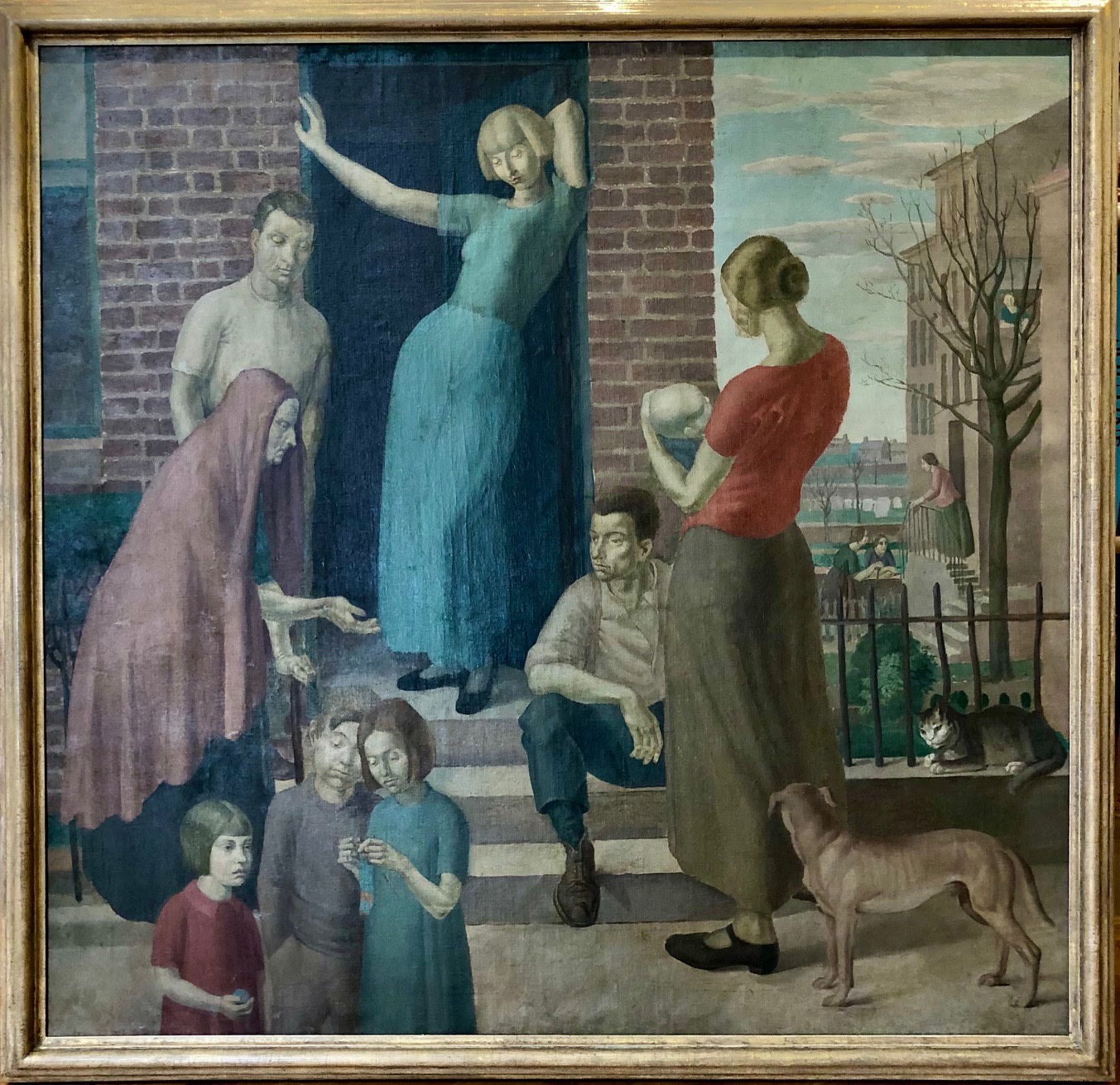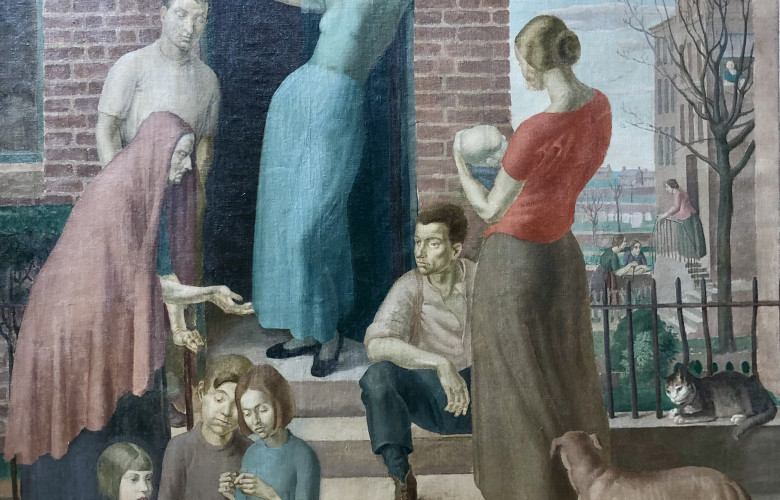
The Prix de Rome Scholarship offered by the British School in Rome was the most prestigious award an art student could win during the interwar years and was a highly contested annual event. The 'Scholarship in Decorative Painting' as it was described until 1929 invited the most able students from the best art schools to compete for the £250 per annum (over three years) prize. In 1923 one of the hopeful applicants was Gerald Cooper who was then in his final year at the Royal College of Art.
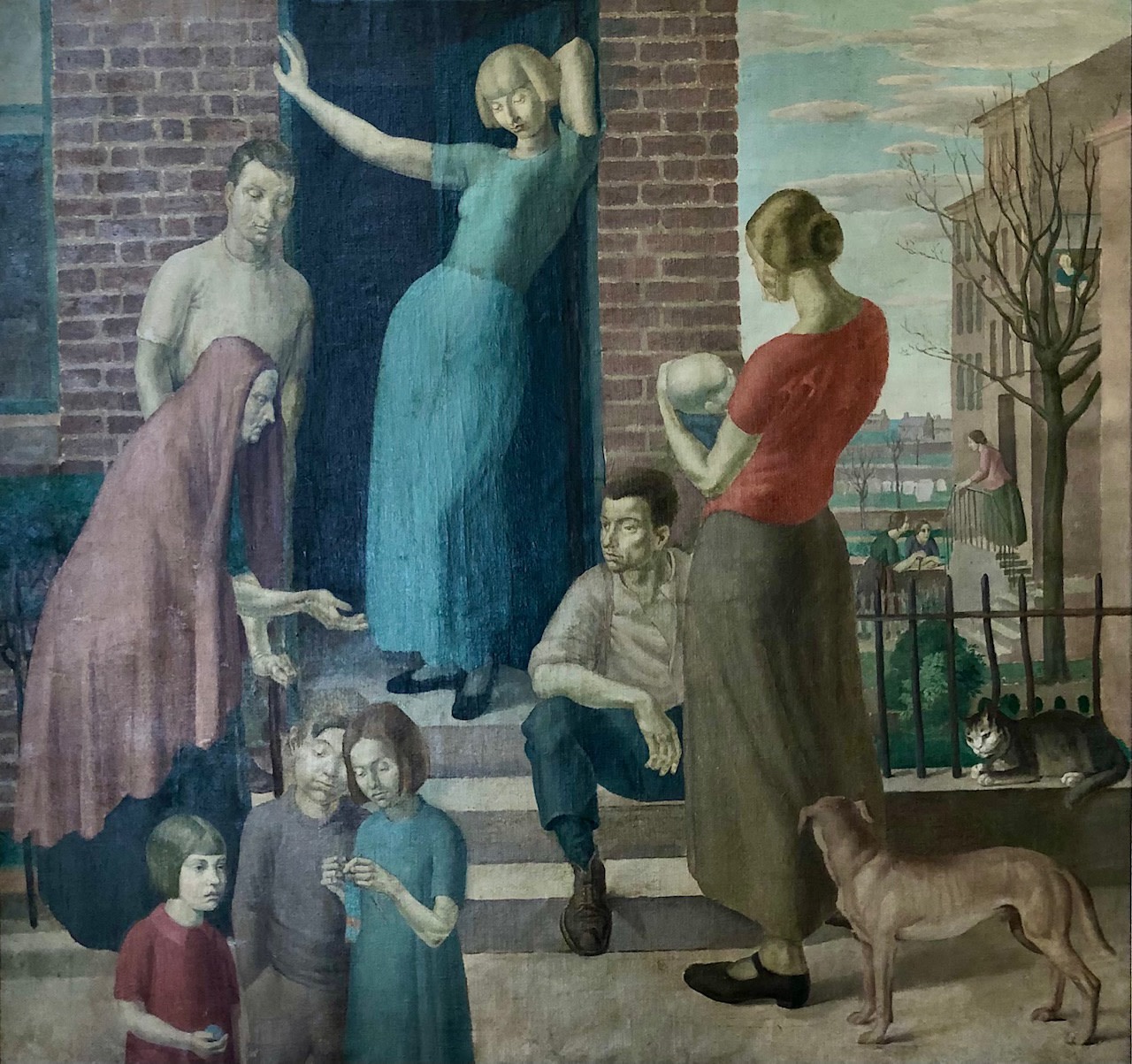
Gerald Cooper (1898-1975) - Allegory on The Three Ages of Man, 1923
After serving as a pilot in the Royal Flying Corps during WW1, Cooper studied at the RCA from 1920 to 1923 where he was recognised for his exceptional draughtmanship - winning the Drawing Prize jointly with Phyllis Dodd. His artistic outlook was therefore formed by very much the same kind of training as that undergone by the generation that emerged as major figures in the years before and after the Second World War - one based almost exclusively on drawing. At the relatively mature age of 25 and as one of the star pupils in a very talented year he must have felt optimistic about his chances of winning the coveted Rome Scholarship. However Cooper's monumental efforts were to no avail as he was not awarded the prize leaving him to wrestle with feelings of disappointment and rejection. This perhaps explains why the canvas was rolled up by the artist and left discarded in a dusty corner of his studio thus remaining forgotten and unappreciated for nearly a hundred years.
The recent rediscovery of Cooper's large scale submission is a poignant reminder of the talented artist's early ambition - a precious moment in time encompassing the sensations of youth when all seemed possible. The work itself is also engagingly evocative of the style and atmosphere of England in the early 1920s. Although inspired by classical themes and aesthetic principles, the painting is full of lovingly rendered details of 1920s fashion and everyday life - underpinned by an awareness of the social nuances of that period. A striking Edwardian elegance, most famously captured by Augustus John, also looms large in the painting.
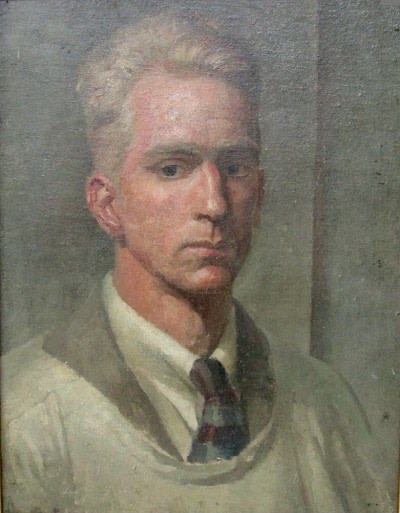
Gerald Cooper - Self Portrait, c. 1930
Cooper became a member of the full-time staff at the Wimbledon School of Art in 1925 becoming principal in 1930 - a post he held until 1964. This wholehearted commitment to teaching no doubt restricted his own personal artistic practice and he was content to devote his technical skill to meticulous flower paintings very much in the Dutch Old Master tradition. These works proved commercially successful and were widely admired, but they lacked originality and were certainly no comment on the time in which he lived. He was instrumental in building the reputation of the Wimbledon School of Art and championed the development of the new art school building in Merton Hall Road.
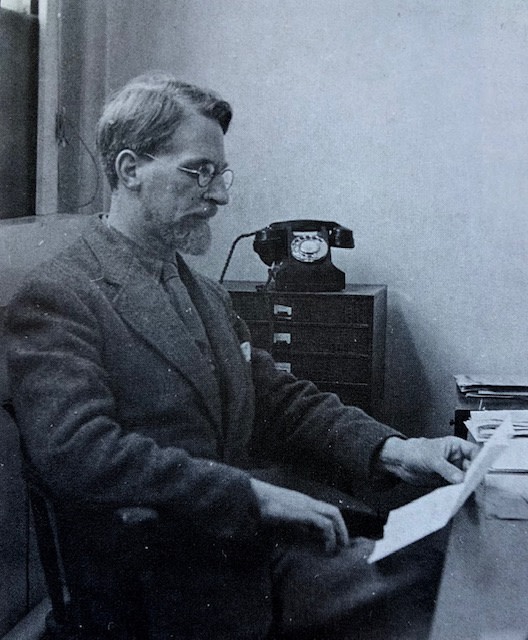
Gerald Cooper photographed at the Wimbledon School of Art, Merton Hall Road in 1940
Cooper did not abandon figurative painting completely, producing a memorable series of farm paintings during the 1930s that again demonstrated his talent for large scale figurative compositions. His painting Winter from 1935 admirably demonstrates this quality and was purchased by the Corporation of Stoke from the RA summer exhibition - a contemporary review of the time noted how the work, 'Brilliantly captures the atmosphere of harvest time on the farm'. Cooper's considerable achievements in this genre were recently recognised in the National Galleries of Scotland exhibition, True To Life - British Realist Painting in the 1920s & 1930s.
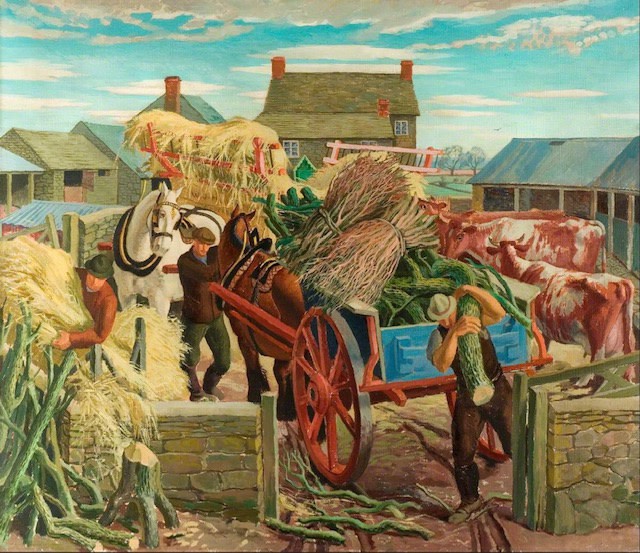
Gerald Cooper (1898-1975) - Winter, 1935, (Corporation of Stoke)
The rediscovered Prix de Rome canvas with its impressive scale and refined style offers a tantalising glimpse of the artist that Gerald Cooper could have become had his career after the Royal College not been monopolised by teaching and the burden of financial necessities.
